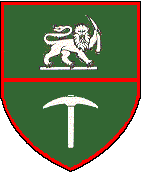|
WEBMASTERS NOTE; The
volunteers who fought alongside the Rhodesians during the bush war,
contrary to the popular perception abroad (and guerrilla propaganda),
were not mercenaries (in the legal sense of the word), but signed up in
the Rhodesian Security Forces under the same conditions and at the same
rate of pay as Rhodesian regulars. The word and tile "MERC"
appears here because the following articles are about MERCs who served
Rhodesia, But not necessarily in that mode. So the word is not politically
correct, so what! |
|
White-ruled Rhodesia lacked white manpower; and as
in the mid-Seventies the war against the guerilla forces of Joshua Nkomo
based in Zambia and those of his rival Robert Mugabe based in Mozambique
grew more ferocious and more murderous, conscription of the local white
settlers proved insufficient to fill the ranks. Therefore, at first
discreetly, then much more openly, Ian Smith’s regime began to recruit
professional white soldiers from all over the Western world. Most were
British and American. They were of course fighting for a country that
was technically a British colony in rebellion against the British Crown;
but they can hardly be described as traitors. For Rhodesia was
quintessentially British in style and way of life, and proud of it.
Perhaps that is why so very few South Africans joined the Rhodesian army
— there has always been a strong mutual antipathy between the Boers of
South Africa and the British of Rhodesia despite their common boundary,
shared interests and similar colour of skin. But a certain number of
Americans came to Rhodesia, recruited indirectly via articles and
advertisements in Soldier of
Fortune and more directly via Major Robert Brown, the magazine’s
publisher, who came himself to Salisbury in June 1977 to discuss
recruiting with Colonel Lamprecht, head of Rhodesia’s recruiting
office.
The pay was at the time not high — a mere £40 a
week — and the contract long: three years. But as the war against the
guerillas intensified, the pay rose to $800 a month minimum, up to
$3,000 maximum, and the number of foreigners serving with the
Rhodesians, either as ‘volunteers’ or as ‘immigrants’, to no
less than fifteen hundred. British and Americans apart, a number of
other whites from different parts of the world were recruited. Precise
figures are difficult to come by but it seems that the RLI — the
Rhodesian Light Infantry — was largely composed of West Germans and
Danes and mat both the Selous Scouts, a ferociously ruthless
guerilla-killing unit and Grey’s Scouts, who patrolled stealthily on
horses, were in effect mercenary units.
The foreigners were mercenaries, of course, but they
were joining a structured, regularly paid regular army as individuals;
and so they can hardly be said to constitute mercenary
war-bands in the sense of what had been done in the Congo. Many of these
hired soldiers found them selves gravitated toward the Rhodesian Special
Forces. A certain air of mystery surrounds Special Forces. The Special
Forces continued to function after the ceasefire of November 1979 up to
and through the elections of February 1980. On 4 March Lord Soames —
his last act of importance as Governor — asked the victor in the
elections, the Marxist-orientated Mugabe, to form a government. There
had been rumours in the interim of a last desperate fling by the still
white-commanded army, a coup in
Salisbury to preempt Mugabe’s installation as Prime Minister. It came
to nothing. The white units — the Special forces; Rhodesian Light
Infantry, the Selous Scouts and SAS — were dissolved. Many of the
Mercs and Soldiers of these units then headed south, away from possible
reprisals, across the into the Republic of South Africa. Many of these
men were immediately enrolled, most of them, in a rather special unit
of the South African Defence Force (as the Republic’s armed forces
were called), the Reconnaissance Regiment known as “The RECCES”.
Ron Reid-Daly, the former commander of the Selous
Scouts, found a new mercenary niche as commander of the Transkei Defence
Force, with other fellow ex-Selous Scouts, becoming the CO of the
Transkei Regiment.
The Rhodesian veterans did not, however, apparently fit
in too well with what was very much an Afrikaner-dominated Afrikaner-speaking
force; and when their contract came up for renewal, many were not
renewed. This meant that Natal in general and Durban in particular, the
former center of British power in South Africa to which the
ex-Rhodesians naturally gravitated, was by early 1981 full of
disgruntled ex-soldiers who had led an adventurous life in Rhodesia, who had had to
become reconciled to the idea that the South Africa army did not want
them, and who were trying half-heartedly to reconcile themselves to
civilian life and civilian employment.
***Source*** This information is edited from; THE
NEW MERCENARIES -The History of the Hired Soldier from the Congo to the Seychelles. By
Anthony Mockler.
|




